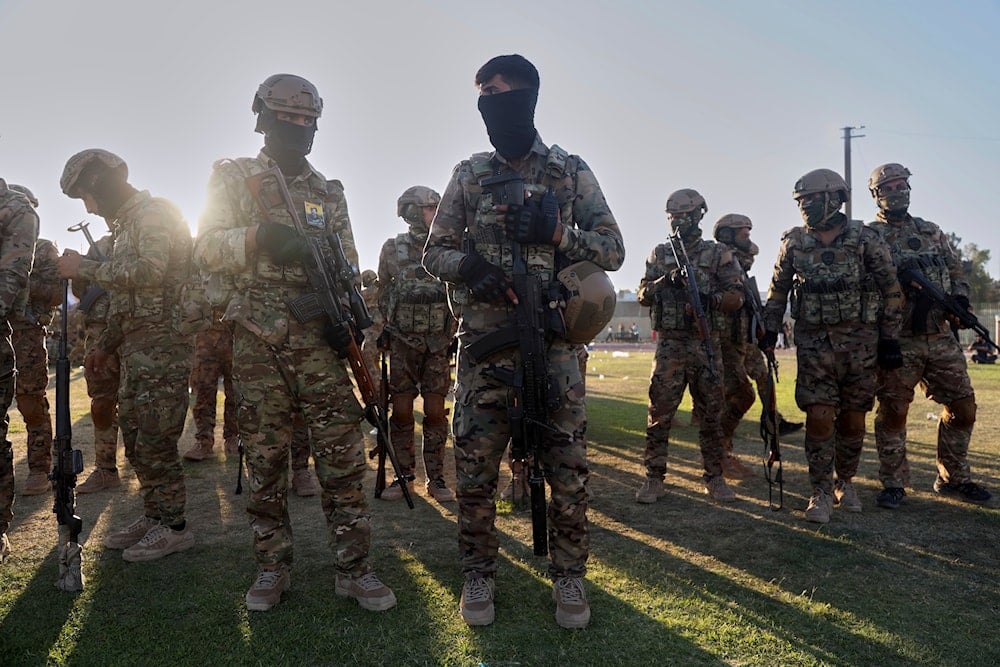SDF, international coalition hold exercises in Hasakah: SOHR
The Syrian Democratic Forces and the international coalition conduct joint military exercises in Hasakah's northern countryside, aiming to boost coordination and readiness.
-

Syrian Democratic Forces (SDF) militants prepare to attend a military parade, in Qamishli, northeastern Syria, Tuesday, Aug. 12, 2025. (AP)
Joint training exercises between the international coalition and the Syrian Democratic Forces (SDF) have been conducted at the coalition's Qasrak base in the northern countryside of Hasakah near the town of Tal Tamer, according to the Syrian Observatory for Human Rights on Thursday.
These drills, now entering their fourth consecutive day, are part of an effort to bolster military coordination between the two forces and have been marked by aircraft overflights, successive explosions, and intense gunfire, all contributing to a tense security atmosphere across northeastern Syria.
This comes after a Syrian army soldier was wounded on August 26 by a drone strike launched by the SDF, which targeted an army position on the outskirts of Deir Ezzor, as reported by the Syrian Al-Ikhbariya news channel.
Tensions between the two sides first escalated earlier this month, following political disputes stemming from an SDF-organized conference and the subsequent withdrawal of the Damascus government from negotiations that were scheduled to take place in Paris.
Syrian gov. rejects SDF conference, accuses it of breaching unity deal
A senior Syrian government official reaffirmed in early August the right of citizens to peaceful assembly and constructive dialogue within the framework of a unified national project that upholds Syria’s territorial integrity, sovereignty, and the unity of its people.
Speaking to the Syrian Arab News Agency (SANA), in response to the recent conference organized by the Syrian Democratic Forces (SDF) in al-Hasakah, the official said religious and ethnic groups have the full right to express their political visions and establish parties within legal frameworks. However, such activity must remain peaceful, refrain from taking up arms against the state, and avoid imposing a unilateral vision for the structure of the Syrian state, according to the official.
They stressed that the form of the state cannot be decided through factional understandings or local agreements, but only through a permanent constitution ratified by popular referendum, ensuring equal participation for all Syrians. Any political proposal, they added, must be addressed through public dialogue and the ballot box, not through threats or armed force.
The official said what took place in northeastern Syria does not represent a unifying national framework, but rather a fragile coalition of actors “harmed by the Syrian people’s victory and the fall of the old regime,” reliant on foreign support. Such groups, they argued, use conferences like this to evade future national commitments while ignoring “state constants based on one army, one government, and one country.”
Damascus condemned the hosting of separatist figures and individuals involved in hostile acts at the conference, calling it a flagrant violation of the March 10 agreement. The government held the SDF and its leadership fully responsible for the legal, political, and historical consequences of this breach, describing the gathering as an attempt to internationalize Syrian affairs and reimpose foreign sanctions.

 3 Min Read
3 Min Read








